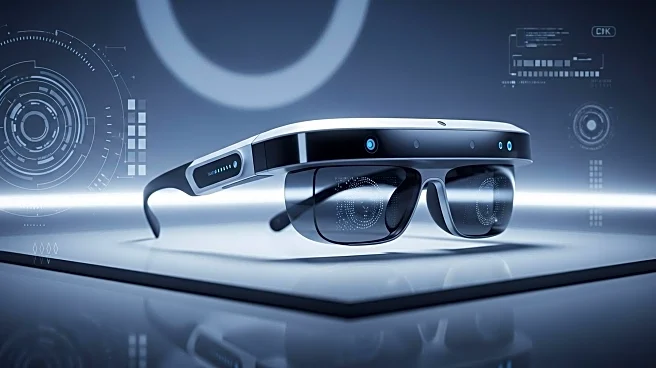What is the story about?
What's Happening?
Amazon is advancing its consumer technology portfolio with the development of augmented reality glasses, codenamed Jayhawk, slated for release in late 2026 or early 2027. These glasses are expected to integrate shopping, maps, and voice AI into a wearable screen, marking a shift from Amazon's traditional backend services to visible consumer hardware. The Jayhawk glasses will feature a microphone, speaker, camera, and a full-color display in one eye. This move could redefine the shopping experience by providing guided product information, live deals, and voice ordering directly to users, potentially altering holiday sales dynamics if Amazon successfully integrates ergonomics and AI.
Why It's Important?
The introduction of Jayhawk glasses could significantly impact the retail industry by changing how consumers interact with products and make purchases. Retailers may need to rethink their strategies for product discovery and inventory localization as Amazon's AR technology could lead to faster in-store conversions and voice-driven purchases. This development also raises privacy concerns, as personalized, location-based ads could become more prevalent, influencing consumer behavior and potentially reducing traffic to independent search platforms.
What's Next?
As Amazon prepares for the Jayhawk rollout, industry reactions remain cautious, with competitors like Meta and Ray-Ban accelerating their own AR initiatives. Analysts highlight user comfort and style as potential adoption hurdles. If Jayhawk launches as planned, it could lead to tighter Amazon-first discovery and increased use of personalized ads, prompting retailers to adapt to these changes in consumer interaction.
Beyond the Headlines
The broader implications of Amazon's AR glasses include potential shifts in advertising strategies, as advertisers may pay to appear in AR overlays. This could lead to a new era of spatial ads and real-time product information mapping, transforming everyday shopping experiences into interactive demos. The integration of AR technology into daily life may also spark discussions on privacy and the ethical use of consumer data.
















